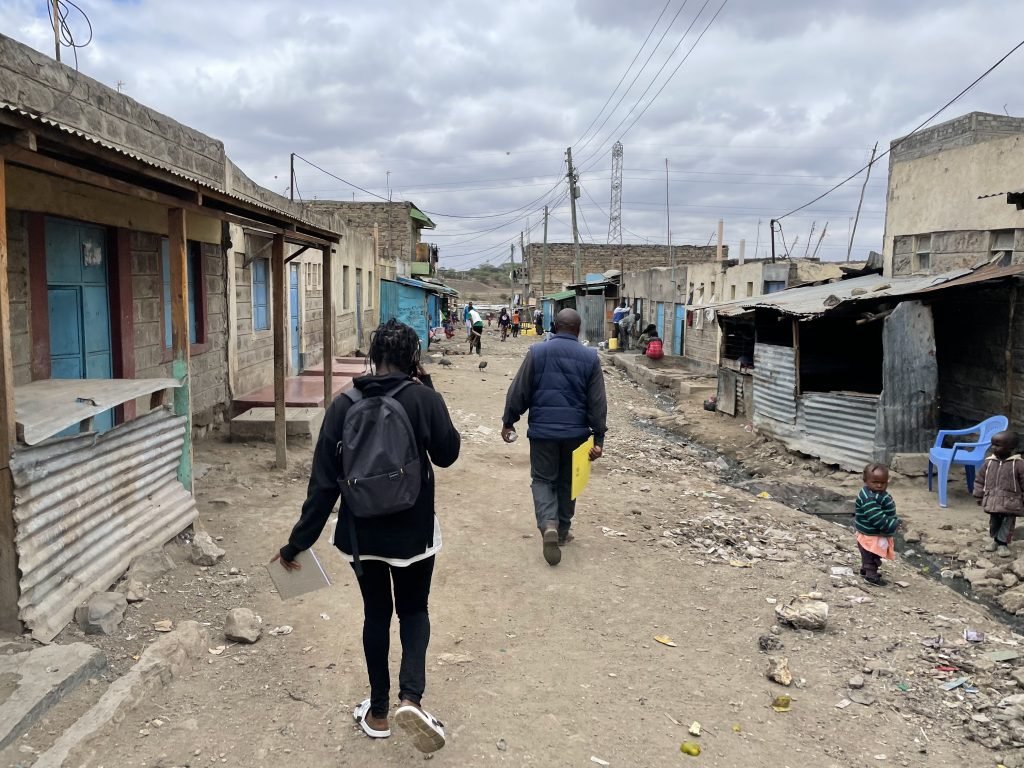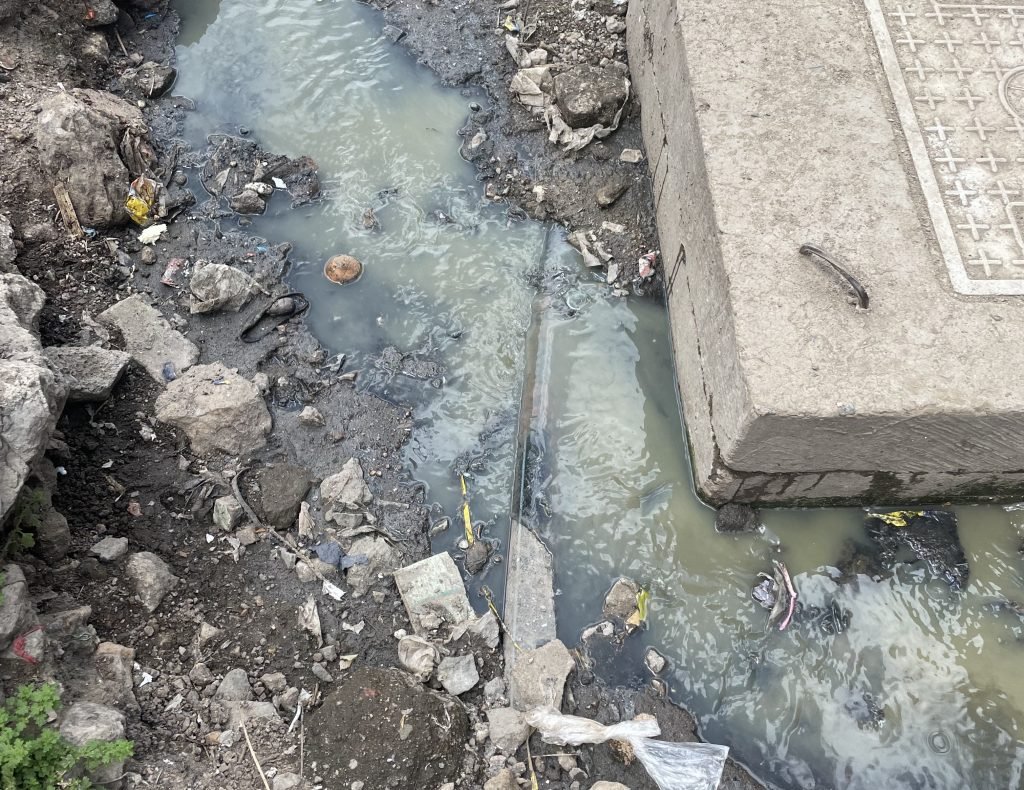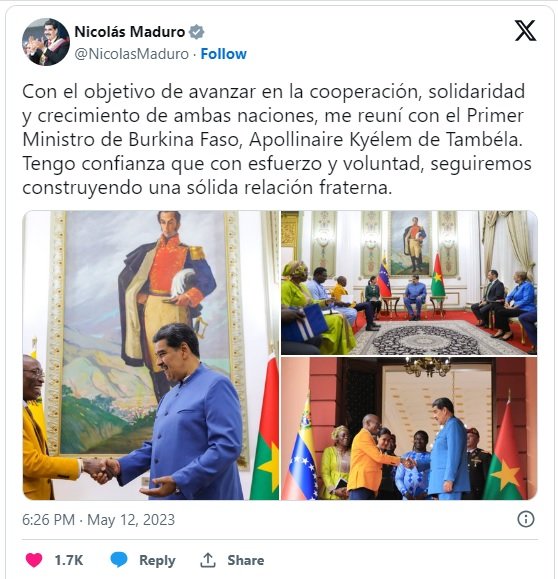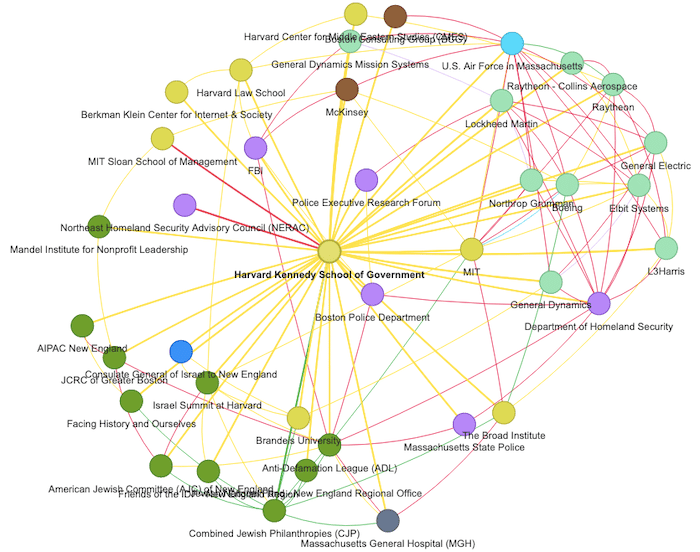By Kevin McCleish
Afro-pessimism in its original iteration found use as a medium to explain the phenomenon of perpetual underdevelopment in Africa. As Mahmoud Mamdani notes, Afro-pessimists suggest Africa cannot rejuvenate itself from within due to the persistence of traditional culture. Kevin Ochieng Okoth describes how Afro-pessimism grew from incessant negative depictions of Africa in Western media, which portray an utterly hopeless continent.
In the face of post-independence failing states, raging epidemics, genocide, and worsening inequality, Afro-pessimism resonated with a global audience because it seemed to justify the interventions of actors ranging from saviorist NGOs [1] to agents of structural adjustment programs like the International Monetary Fund and World Bank. If Africans proved incapable of solving their problems, a host of others appeared who claimed they could.
Emerging from the academy, what Ochieng calls Afro-pessimism (AP) 2.0 differs from its predecessor by focusing intently on the experience of black Americans and how, as Adolph Reed Jr. often and sarcastically puts it, “nothing has changed” since 1865. Reed describes AP 2.0 as an approach which…
“... postulates that much of, if not all, the history of the world has been propelled by a universal ‘anti-blackness.’ Adherents of the Afropessimist critique, and other race-reductive thinkers, posit a commitment to a transhistorical white supremacy as the cornerstone and motive force of the history, and prehistory, of the United States, as well as the imperialist and colonialist subjugation in other areas of the world.”
AP 2.0 proponents believe the uniqueness of anti-black oppression prevents collaboration with other oppressed peoples due to fundamental racial antagonism “condemning them to a life of social death.” AP 2.0 therefore hinders the development of the broad, class-conscious coalitions needed to overcome the hegemonic power of capital. This also renders it impotent against imperialism.
Ahmed Sékou Touré, the first post-colonial president of Guinea (1958–1984), understood that fighting imperialism requires collective action across racial and ethnic lines. Touré is best remembered for organizing an electoral rejection of a new French constitution on September 28th, 1958, which prompted immediate political independence for Guinea. Though the referendum was held in France and across all overseas departments and territories, Guinea had the impressive distinction of being the only political unit to vote “no” on the constitution and colonization. Through his organizing efforts, Touré achieved 85% voter turnout with 95% voting against the colonial arrangement.
After becoming president in October 1958, Touré quickly realized that political sovereignty meant little without economic sovereignty. So Touré adopted what he called a “non-capitalist” path of development in recognition that “the anti-imperialist struggle is the climax of class struggle.” Following this path was made all the more difficult by repeated attempts of international sabotage and economic isolation.
A committed pan-Africanist and fierce proponent of nonalignment during the Cold War, Touré played an immense and overlooked role during arguably the most critical juncture in human history: the Cuban Missile Crisis. When President John F. Kennedy directed a naval “quarantine” of Cuba after intelligence showed the construction of nuclear missile sites on the island in response to the American placement of missiles within striking distance of Moscow, the Soviets immediately began planning an airlift of critical military supplies to circumvent the naval blockade. To do so, however, Soviet jets would need to land and refuel prior to reaching the island.
In the fall of 1962, only the five West African countries of Guinea, Ghana, Senegal, Liberia, and Morocco had airstrips long enough to accommodate jet traffic. To stop an airlift before it ever got off the ground, American officials lobbied African leaders to refuse Soviet air traffic. Though each country had its own set of diplomatic challenges, Washington was most concerned about Guinea.
Touré had just accepted Soviet assistance to improve Conakry’s airport runaways months prior. Coincidentally, though, Touré had also just returned from a state visit to Washington where he and Kennedy made good impressions on one another. Recognizing that the Guinean people had nothing to benefit by obliging the Soviet request, Touré, with his trademark independence, refused. His commitment to what he termed “positive neutrality” gave him the diplomatic flexibility to exercise an inordinate amount of influence during the Cold War.
Unfortunately, readers unfamiliar with the “Grand Syli” (Touré’s nickname; literally “Big Elephant”), are likely to see his revolutionary contributions as a dead end rather than a point of departure. Often overlooked in the Anglophone world, Touré’s radical pedigree, honed from the mass politics of labor organizing, shows how today’s leftists can use labor organizing to facilitate the formation of broad-based coalitions capable of agitating for radical political transformation. Such strategies are a welcome antidote to the alternative approach of AP 2.0, which does not challenge the foundations of the current political economy.
Radical Roots Sprout a Labor Leader
Touré’s propensity for mass politics came from his poor peasant origins in Faranah, Guinea. As Saidou Mohamed N’Daou recounts, Touré’s social consciousness developed at an early age as he witnessed his deaf mother suffer abuse. His father died early, and mistreatment drove his mother to suicide shortly after. Orphaned at age seven, Touré found loving refuge in his uncle’s family. Touré entered primary school and showed great intellectual promise and an affinity for anti-colonial agitation — from challenging colonial curriculum to organizing protests against a headmaster who forced students to toil in his garden without compensation (the headmaster refused to take responsibility for a student who died of a snakebite whilst laboring in the garden) [2], to leading a food strike, which resulted in his expulsion as a teenager.
Though his rebelliousness ultimately derailed a promising academic trajectory, Touré’s anti-colonial intransigence ensured he avoided becoming one of the évolués (Africans “civilized” through European education and assimilation) he later came to despise. Had Touré instead complied and wound up in the academy as another “misguided intellectual,” he may have turned out much like his rival and Négritude proponent Leopold Senghor. Touré took issue with Négritude, which — like AP 2.0 — had essentialist foundations. He dismissed Négritude as a reflection of bourgeois class ideology that merely masked Western cultural imperialism. Touré held that African culture could not be disassociated from political, social, and economic contexts asserting:
“[T]here is no black culture, nor white culture, nor yellow culture…Négritude is thus a false concept, an irrational weapon encouraging…racial discrimination, arbitrarily exercised upon the peoples of Africa, Asia, and upon men of color in America and Europe.”
Rather than ascend to the ivory tower training the colonizer’s comprador class, Touré’s path through vocational school kept him grounded with ordinary Guineans ensuring his exposure and involvement in radical politics.
After several apprenticeships and a year as a clerk in the French Company of Western Africa, Touré passed examinations qualifying him to work in the Post and Telecommunications Department in 1941. Denied the ability to continue his scholarly endeavors through official channels, he continued his studies via correspondence education and took a “Red” turn by devouring the works of Karl Marx, Friedrich Engels, Vladimir Lenin, Joseph Stalin, and Mao Zedong. Despite the French Communist Party’s (PCF) refusal to enroll local members in West Africa (in adherence to the orthodox view that Africa undergo a bourgeois revolution to precede a genuine anti-capitalist revolution), Touré became a founding member of the PCF’s first Guinean study group, Groupes d’Études Communistes, three years later in Conakry. Contemporaries remember the PCF “not being progressive enough” for Touré. But he found them useful to learn organizing methods from.
Not content with merely discussing theories of Marxist revolution, Touré’s political praxis led him to organize the first union in French-controlled Guinea, the Post, Telegram, and Telephone Workers’ Union (PTT), in 1945. The PTT, an affiliate of the PCF-connected French General Confederation of Labor (CGT), flexed its muscle in various labor actions under Touré’s leadership which landed him in jail, but also gave him the credentials necessary to organize the United Trade Union of Guinean Workers (USCG). Under this umbrella union, all CGT affiliates in Guinea consolidated just a year later in 1946. Recognizing “unionism is…a calling…to transform any given economic or social regime, always in search of the beautiful and just,” Touré became the most influential labor leader in French West Africa just five years after forming the first Guinean labor union.
Occurring simultaneously with his ascent in the labor movement, Touré’s reputation as an organizer enabled him to quickly climb the ranks of anti-imperialist political organizations operating in French West Africa, such as the Rassemblement Démocratique Africain (RDA). Formed in 1946 at the Bamako Conference, the RDA, in cooperation with the PCF, attempted to coordinate the efforts of regional anti-imperialist leaders throughout French-occupied Africa.
While the RDA formed with PCF support, it is mistaken to assume the leaders were all committed to a vision of “Red Africa.”
As it were, the PCF was one of few European political forces committed to anti-imperialism, which forced many associations of convenience. As Elizabeth Schmidt details, under Touré’s direction, the Guinean RDA chapter, later named the Parti Démocratique de Guinée (PDG) in 1950, certainly remained committed to the PCF and CGT far longer than its regional peers who feared anti-communist repression when the PCF lost governing power in 1947 France. Although the RDA officially broke from the PCF in 1950, Touré dubiously followed the RDA line in his political activities and continued cooperating with the CGT in his union work. Unlike the RDA in other regions whose membership was comprised of planters and chiefs, the PDG’s core membership were civil servants and trade unionists reluctant to sever ties with communist organizations.
72-Day Strike and Electoral Victories
Touré soon integrated his labor and political acumen after becoming the secretary-general of the PDG in 1952. From that point forward, his labor and anti-colonial political activities converged into one indivisible force. The French administration felt the power of the peoples’ solidarity during the 72-Day General Strike of 1953, which set the stage for the famous 1958 independence referendum.
Both Schmidt and N’Daou produce excellent accounts of the 72-Day Strike, the impetus of which was a reduction of the workweek from 48 to 40 hours. Though a work reduction is typically welcome, pay fell proportionally by 17%. Guineans, who were already poor, protested. But French management was unwilling to compromise. So Guinean labor leaders voted to begin a general strike on September 7th, 1953.
As he had done his entire labor career, Touré gave neighborhood speeches to thousands and continued education programs throughout the strike, urging workers to eschew ethnic strife and embrace their common bonds as workers. Composed of various ethnic groups — principally but not exclusively Malinke, Susu, and Peul — Guinea’s ethnic tensions proved more salient in the rural rather than urban areas due to the coercive power of the colonial canton chieftaincies. In the more cosmopolitan Conakry, calls to transcend significant social divisions using an eclectic mix of themes, found in the language of Marxist class antagonism, French liberal ideals, and selected African beliefs of honor, dignity, and racial pride united workers along class lines.
Like any effective organizer, Touré understood that the value of an idea is measured by its social utility. While some critique the “third way socialism” of Touré, it is unlikely Marxist-Leninist proselytization would have had the same impact on participants as his pragmatic ideological flexibility. By December 1953, workers won their wage increase with 80% of Conakry’s workers participating in the labor action. Trade union membership exploded, from 4,600 in the beginning of the strike to 44,000 by 1955.
Touré’s foundation in and amongst the people is what made him successful. His effective organization of workers and their corresponding communities laid the groundwork for his coming electoral success and the resounding campaign to dismiss colonialism on September 28th, 1958. Touré’s broad-based coalition strategy became apparent leading up to the independence vote, when he campaigned throughout Guinea on behalf of the RDA/PDG, asserting that “the RDA is not a knife that divides, but a needle that sews [together].” Knowing that any anti-colonial coalition could not survive identitarian fragmentation, Touré relied on public pedagogy to elevate the political consciousness of the masses, declaring:
“We are against racial and ethnic prejudice. We are for qualified people whether they be European, Senegalese, Peul, or Bambara. Some of you say you will not vote for the RDA ticket…because a European is on it. This reasoning is stupid.”
Ethnic divisions proved more salient in the rural areas, where colonial-approved chieftains exercised coercive power over taxation, corvée labor [3], and — even though it had been outlawed in 1905 — slavery primarily made up of Dialonka people serving Peul-aristocratic chiefs in the region of Futa Jallon. It is estimated that 25% of the Futa Jallon region’s population were composed of slaves or their descendants in 1955. Residue from the colonizer’s imported Hamitic Hypothesis still plagued many amongst the Peul aristocrats, who believed they were of superior racial stock compared to non-Peul Guineans.
This second-class population divided by class and ethnicity were organized electorally by Touré and the PDG by referencing their exploitation at the hands of the colonial-connected chieftaincy and appealing to Islamic egalitarian principles. Ever pragmatic, Touré omitted Marxist references and spoke plainly about the exploitative conditions enforced by canton chiefs. Doing so, however, he carefully distinguished between their material and ethnic differences to ensure his broad-based coalition remained inclusive to all Guineans.
Communicating his message to overwhelmingly illiterate rural populations elsewhere, he continued in comprehensible terms:
“Man is like water, equal and alike at the beginning. Then some are heated and some are frozen so they become different. Just change the conditions, heat or freeze, and the original equality is again clear.”
Facing historic and manufactured social divisions proved no easy task. But Touré’s inclusive organizing paid off, as demonstrated by the electoral results from 1954 to 1957 where the PDG dominated municipal, regional, and territorial elections. Though the French initially managed to stem the tide of Touré through electoral manipulation, after 1954, the colonizers recognized that continuing to engage in obvious fraud would lead to backlash. It was clear who ruled the streets.
With his newfound legislative and executive authority, Touré set out to destroy the colonial chieftaincy through a parallel power structure of democratically elected PDG local committees who effectively replaced the hated colonial canton chiefs by 1957 and assumed their duties of tax collection and administering justice. After years of power-structure analysis, Touré knew their destruction would be necessary to remove the vestiges of colonial authority.
As president, Touré continued to combat ethnic and religious differences by moving bureaucrats outside of their home regions, banning groups organized on the basis of race, religion, or ethnicity, surrounding himself with ethnically diverse advisers, and continuing to communicate in various indigenous languages. In such a brief spell of political activity, the man who cut his teeth as an organizer engineered the only electoral rejection of French colonialism and fought against all odds to achieve genuine political and economic sovereignty.
Whose Touré is This?
Although violent resistance against capitalism is often fetishized, any Marxist worth their salt should be able to organize resistance at the point of production. Through his organizing career, the man who not only read Marx’s Capital but had, as Bill Haywood put it, “the marks of capital all over [his] body” from his time on the shop floor, transcended social divisions and united Guineans of all stripes against their colonizer. Recipient of the 1961 Lenin Peace Prize, Touré’s experience should not only be included in the tradition of “Red Africa,” but serve to illustrate the revolutionary possibilities of labor organizing as an alternative to AP 2.0.
Touré’s ability to unite a diverse population on the basis of class antagonisms proves his mantra that content rather than form supersedes all concerns for those committed to overthrowing capitalism. By focusing on the common denominators and rejecting essentialist obstacles, Touré’s lifelong commitment to construct a better world is instructive. He unequivocally rejected the notion that black people could not exercise political agency, that cooperation amongst demographically diverse groups is impossible, and that a history of slavery precludes meaningful participation in civic life. Rather than accept condemnation to a “life of social death,” Touré instead embodied the words of Frantz Fanon, believing that:
“Man is a yes…Yes to life. Yes to Love. Yes to generosity. But man is also a no. No to the scorn of man. No to the degradation of man. No to the exploitation of man. No to the butchery of what is most human in man: freedom.”
Kevin McCleish is a high school social science teacher and labor organizer from Illinois. His best work is found on the shop floor.
Footnotes
[1] Examples include George Clooney’s Not on Our Watch, which intervened in Darfur, and Invisible Children — the group behind Kony 2012.
[2] Touré does not indicate the headmaster’s race in his recollection. The omission is, perhaps, indicative of his position that imperialism does not operate exclusively along strict racial lines. The colonial education system functioned to maintain existing power relations using white Europeans, black Antilleans, and Africans of the comprador class. Resistance to the system was inherently anti-colonial.
[3] Corvée labor is a system wherein people must work unpaid for a feudal lord for a period.














